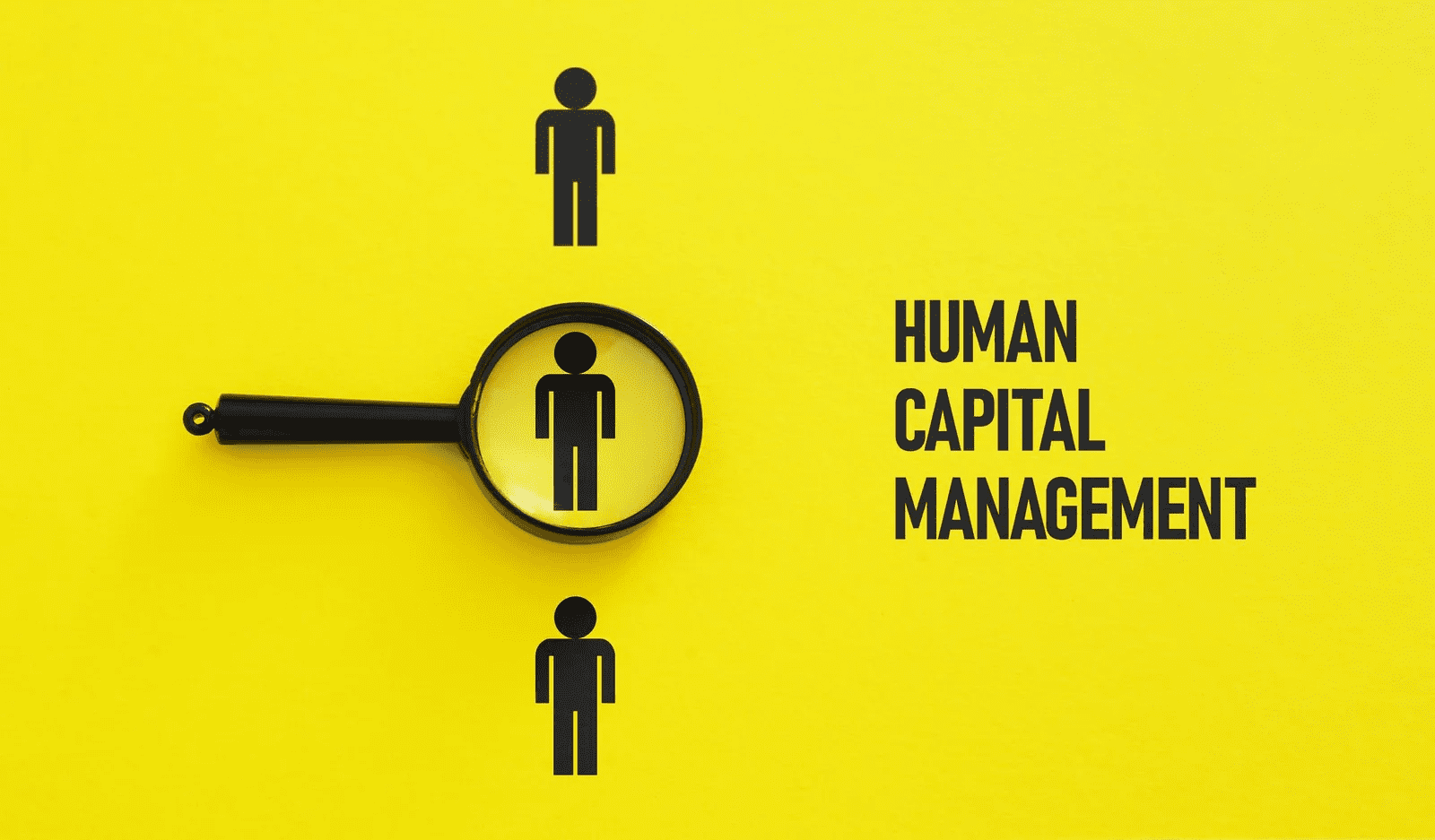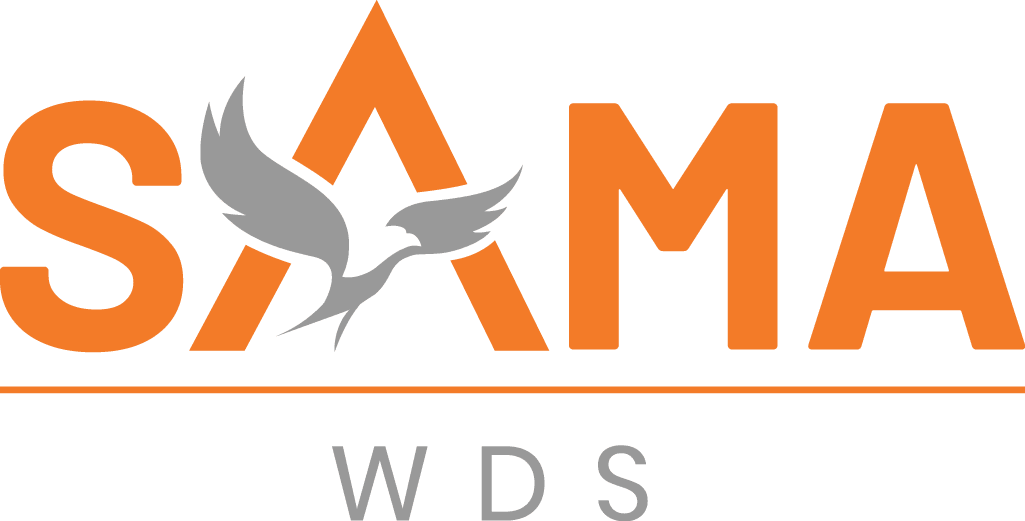
What Is Human Capital Management (HCM)
Human Capital Management (HCM) refers to a set of practices related to workforce acquisition, management, and optimization. The term has become more important as organizations realize that their employees are key assets contributing to overall success. HCM is an improvement from traditional human resources (HR) management because it takes a more strategic and holistic approach.
At its core, HCM aligns the workforce’s potential with company goals through:
- Recruitment: Attracting the right talent
- Development: Nurturing skills and career growth
- Retention: Keeping employees engaged and satisfied
- Analytics: Leveraging data for informed decision-making
These elements work together within the HCM framework, replacing traditional HR functions such as payroll, benefits administration, and compliance. With technology being integrated into these areas, the future of workforce management is becoming more dynamic and data-driven.
This article will explore how HCM is being redefined by technological advancements. You will learn about the important role each part of an HCM strategy plays and the significant effect digital solutions have.
For those considering upgrading their systems, exploring services like Workday EIB implementation can be beneficial. This involves leveraging Workday’s Enterprise Interface Builder (EIB) functionality to streamline data migration and integration processes. Additionally, tailoring such advanced platforms to specific organizational needs, as illustrated by customizing Workday expertise for your organization, is an example of how companies can use technology for effective human capital management.
Unclear about HCM strategy and how to optimize your workforce investment?
Develop a comprehensive HCM approach that aligns talent management with business objectives for improved organizational performance.

1. Understanding the Key Components of Human Capital Management
Human Capital Management (HCM) is a comprehensive approach that incorporates various functions essential to developing and managing an organization’s workforce. Below is a detailed look at the key components:
Recruiting
The process of attracting, screening, and selecting qualified individuals for a job. In an HCM strategy, recruiting plays the pivotal role of sourcing talent to fit the organizational culture and meet business objectives. Technology has revolutionized recruiting through applicant tracking systems (ATS) and platforms that harness big data and analytics to improve the quality of hires. For instance, leveraging HR analytics with Workday HRIS can provide valuable insights during the recruitment process.
Learning
This component focuses on upskilling employees to meet current and future demands of their roles. Training is integral in ensuring employees are competent and confident in their positions, which directly impacts productivity. With e-learning platforms and online training modules, technology enables continuous learning and development opportunities that are accessible remotely.
Payroll
Accurate processing of employee compensation encompasses not just salary but also bonuses, deductions, and taxes. Payroll is fundamental in maintaining employee satisfaction and compliance with legal standards. Technological advancements in payroll systems now allow for automated calculations and integrations with timekeeping devices, substantially reducing errors.
Compensation
Beyond regular paychecks, compensation includes benefits, retirement plans, stock options, and other financial rewards designed to retain top performers. Effective compensation management ensures equitable pay structures within an organization. Modern HCM solutions offer sophisticated tools for analyzing market data and aligning compensation plans with industry benchmarks.
Performance Management
This involves evaluating employee performance against predefined objectives. Performance management is key to recognizing achievements, addressing areas for improvement, and aligning individual goals with company strategy. Contemporary performance management tools facilitated by technology provide real-time feedback mechanisms, goal setting features, and analytics-driven performance assessments.
Staff Augmentation
While the aforementioned components are essential, organizations often require expert guidance to enhance their HCM capabilities through technology. This is where consulting services like those offered by Sama come into play. These services can be invaluable in navigating the complex landscape of HCM.
These components operate synergistically within the HCM framework to optimize human resource processes. With the integration of technology, these functions have transitioned from transactional tasks to strategic initiatives that drive business success.
As these components continuously evolve through digital advancements, businesses are better equipped to manage their most valuable asset: their people.
2. Embracing Digitalization: The Advantages of HCM Software Solutions
Human Capital Management (HCM) software is a significant improvement over traditional HR practices. It combines various technologies to effectively manage an organization’s workforce. Over time, HCM software has evolved from basic payroll processing tools to comprehensive systems that handle all HR tasks.
Some of the key features of modern HCM software solutions are:
- Talent Acquisition: Making the recruitment process more efficient with automated tracking and management tools.
- Workforce Management: Providing functionalities for scheduling, time tracking, and attendance.
- Performance Management: Supporting continuous performance assessments and goal setting.
- Learning and Development: Offering platforms for online learning and employee skill enhancement.
- Compensation Planning: Helping with strategic salary planning and benefits administration.
- Succession Planning: Assisting in identifying and developing future leaders within the organization.
- Analytics and Reporting: Providing valuable insights through data analysis to aid decision-making.
The benefits of using advanced HCM software:
- Enhanced Efficiency: Automation reduces manual workloads, allowing HR staff to focus on strategic initiatives.
- Improved Accuracy: Minimizing human error in data entry and calculations.
- Scalability: Cloud-based solutions easily adapt to the growing needs of businesses.
- Data Security: Robust security measures safeguard sensitive employee information.
- Compliance Management: Keeping up-to-date with legal regulations automatically.
- Employee Self-Service: Empowering employees to manage their personal information and tasks.
By leveraging state-of-the-art HCM software, you position your organization at the forefront of workforce management.
For those considering an upgrade or implementation, exploring services such as Workday Payroll Implementation, which offers best practices for successful transitions, can be instrumental. Similarly, specialized recruitment modules within HCM platforms, like Workday Recruiting, provide full-time recruiting services that enhance talent acquisition strategies.
Adopting these advanced systems is not simply about keeping pace with technology; it’s about unlocking the full potential of your human capital to drive organizational success into the future.
3. The Future is Now: Emerging Trends in HCM Technology
As organizations look to stay competitive and efficient, technology plays a pivotal role in advancing Human Capital Management (HCM) strategies. The landscape is continually reshaped by innovations that streamline processes, enhance decision-making, and improve employee experiences. Let’s delve into some of the major future trends that are currently shaping the HCM field:
Software as a Service (SaaS)
SaaS models have revolutionized how organizations deploy HCM systems. Offering scalability, accessibility, and reduced costs, SaaS solutions ensure that businesses can leverage state-of-the-art HCM features without a hefty initial investment or ongoing maintenance worries.
Mobile Applications
With the workforce becoming increasingly mobile, HCM solutions have followed suit. Employees now expect to access schedules, benefits information, pay stubs, and more from their smartphones or tablets. This shift not only boosts convenience but also fosters greater engagement and productivity among staff.
Machine Learning
By analyzing data patterns to predict outcomes such as employee churn or hiring needs, machine learning infuses HCM systems with powerful predictive analytics capabilities. These insights enable proactive talent management and refined HR strategies.
Artificial Intelligence (AI)
AI is transforming HCM through automation of routine tasks, personalized learning and development recommendations for employees, and sophisticated recruitment tools that improve candidate screening processes.
Chatbots
The incorporation of chatbots into HCM platforms has streamlined various HR tasks by providing instant responses to employee inquiries. This not only enhances the employee experience but also allows HR professionals to focus on more strategic initiatives.
These advancements are not just theoretical—they’re actively being implemented by forward-thinking companies seeking to optimize their HR functions. For instance, integrating advanced cloud-based HCM software can automate benefits administration effectively. Similarly, tapping into specialized services like Workday Talent Acquisition connects businesses with top-tier Workday professionals who can drive these technological advancements within an organization.
By understanding these emerging trends in HCM technology, you can prepare your organization to adopt new tools that will shape a more efficient and responsive HR department geared for the future.
Unclear about HCM strategy and how to optimize your workforce investment?
Develop a comprehensive HCM approach that aligns talent management with business objectives for improved organizational performance.

4. Navigating Change: Implementing Successful HCM Solutions in Your Organization
Introducing Human Capital Management (HCM) software to your organization can come with its fair share of challenges. Some of these challenges include:
- Adaptation to new technology: Some users may struggle with embracing and using new systems.
- Data migration: Transferring large amounts of sensitive information accurately and securely can be a complex task.
- Aligning the new system with existing processes: This often requires making significant changes to how work is done.
To overcome these challenges, here are some strategies you can consider:
Stakeholder Engagement
Involve key stakeholders early in the process to ensure their buy-in and support.
Comprehensive Training
Offer extensive training programs for all users to minimize resistance to the new system.
Phased Rollout
Implement the software in stages to allow for adjustments and to mitigate risk.
Change management is crucial during this transition. It involves guiding your organization through the implementation phase with as little disruption as possible. A solid change management plan ensures that everyone understands the benefits of the new HCM system and is equipped to use it effectively.
For insights on best practices during implementation, Sama offers valuable advice that can aid in navigating these changes smoothly, especially when it comes to change management in HCM implementation.
Moreover, managing data efficiently is critical when shifting to a new HCM solution. Mastering Data Management with Workday EIB provides an example of how structured data management can streamline processes and improve overall HCM outcomes.
Remember, successful HCM software implementation is not simply about deploying new technology—it’s about transforming your human capital strategy through effective change management in HCM implementation.
Conclusion
Technology has completely changed the way we approach Human Capital Management (HCM). It has become a crucial part of business strategy, with innovative software solutions improving talent management and employee engagement in every aspect.
To stay competitive, it is essential to stay updated on the latest trends and advancements in HCM technology. This will help you adapt to the ever-changing needs of your workforce.
Consider exploring services like Sama Workday Services, which specialize in consulting, staffing, and recruitment specifically within the realm of HCM. These services can provide valuable insights and support as you navigate the world of HCM.
The future of HCM is happening right now, and it brings both opportunities and challenges. Embrace it by making informed decisions, creating strategic plans, and being open to innovation.
Unclear about HCM strategy and how to optimize your workforce investment?
Develop a comprehensive HCM approach that aligns talent management with business objectives for improved organizational performance.

